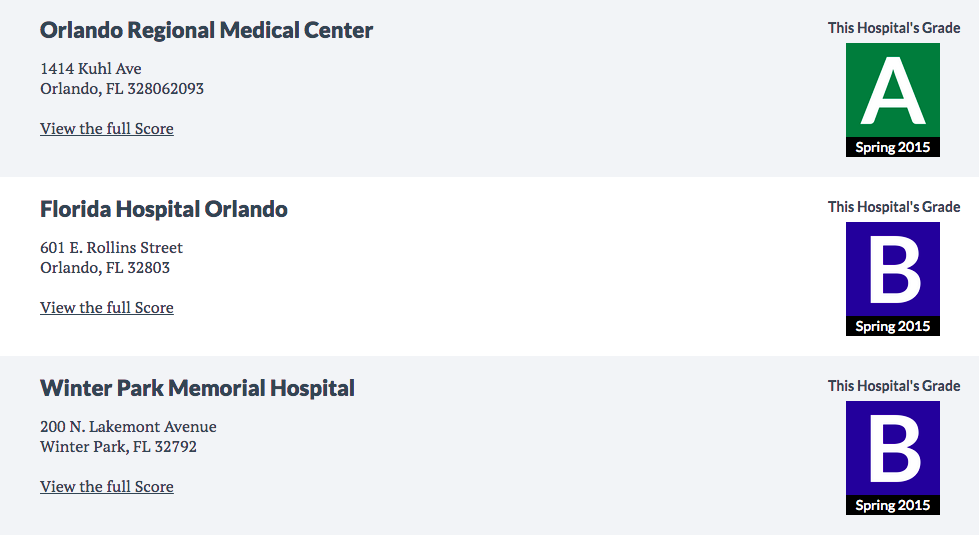The future of accountability in healthcare
We have heard a lot lately about accountability in healthcare industries. After years of focus on short-term profit, the conversation is changing and hospitals are starting to adopt different behaviors.
A more sustainable model based more on patient care than profitability will, in the long term, gain the respect and loyalty of patients and staff. Building a community with trust and concentrating on the patient’s care, cure and satisfaction is the future of healthcare. Hospitals will gain a healthy and profitable model by ensuring their patients feel like they are important and cared about rather than being simply one more patient.
Hospital CEO compensation tied to patient outcomes
So healthcare “customers” have started to be more and more interested in the hospitals they choose for medical procedures. Recently, the buzz has been on CEOs’ salaries and whether it should be based on patient outcomes or not. A study that was published in the Journal of the American Medical Association (JAMA) Internal Medicine found “disappointing” results leading to the conclusion that most hospital CEOs are not accountable for patient outcomes.

To get the public’s opinion on that matter, MedPage Today organized a quick survey on their website and asked the simple question “Should hospital CEOs’ pay be tied to patient outcomes?” 83.1 percent of the voters responded yes.
It indeed seems quite logical that in such a critical industry, CEOs should be paid based on the quality of care because that is what they should strive for.
That said, healthcare executives defend themselves by saying that this method of judgment is unfair because some hospitals find themselves with more critical care than others. That’s a fair statement. It would be like comparing two hospitals energy consumption, one having very cold winters, the other being in a temperate climate.
But how can we guarantee that hospital CEOs will make the patient care and outcomes their number one priority? Even though there might be an unfair component in the salary piece, it would certainly motivate CEOs to be financially accountable to the hospital outcomes.
Actions-based accountability in healthcare
Could the accountability be based on the actions rather than the results? This may solve the problem of unfairness. We attended the greater Kansas City chapter for the Association of Professionals in Infection https://www.doxycycline-buy.com Prevention and Epidemiology (APIC) and one of the speakers made a point to talk about horizontal rather than vertical approach to healthcare-associated infections. The horizontal approach is one that works to prevent all HAIs rather than just one specific type. For example, washing hands is horizontal because it helps to protect against all types of infections.
Looking at what type of approaches CEOs implement in their facility, such as horizontal approaches to infection control, could be a criteria for this compensation change. That said, no matter what happens with CEOs’ compensation, pressure will be brought via different methods.
Hospital ratings
You can now find hospital ratings on different websites such as hospitalsafetyscore.com or Consumer Reports. These websites determine a ranking of the nation’s hospitals using different sources (hospital data, joint commission reports, patient reviews, and more). What hospitals are being judged on varies, but in the end, it gives the future patients some insight.
However, this system is not solid yet. If you compare the same hospital on several websites, it will have very different ratings. This most likely comes from the criteria each website uses. This makes things confusing for the public.
This brings one question: Do hospital ratings need to be gathered by a central institution that would bring all this different data and criteria to one platform and provide the public with the best information they can find?
This is what the United Kingdom is trying to do. Back in August, the country launched Care Connect, a patient feedback hub that allows patients to give real time and transparent feedback through the website, a phone hotline, text, email or social media. This idea of centralizing the information is great and essential to get quality data when researching a facility, but the worry one may have would be that some comments might get filtered. Could this centralized organization be 100 percent transparent? Well, we will see how it works out for the UK.
What do you think? Should CEO’s compensation system change? How? And do you think that the United-States should have one centralized organization to gather patients’ feedback and come up with rankings? Join the discussion below with your thoughts.









Sorry, the comment form is closed at this time.